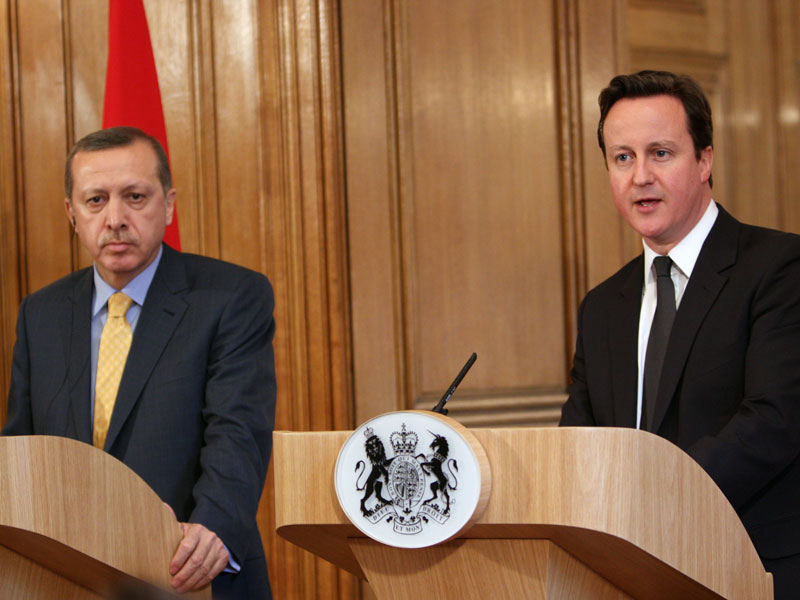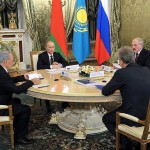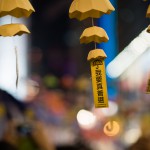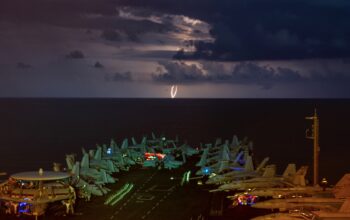In 2009, during the World Economic Summit in Davos, Switzerland, Turkish Prime Minister Recep Tayyip Erdoğan publicly criticised Israeli President Shimon Peres for the Gaza operations in his famous “One minute” speech. His unexpected walk from the stage later during the event as a sign of protest, was the first big act, marking the deterioration not only of Israeli-Turkish ties, but also of Turkey’s loyalty towards the West.
Criticism of Israel and the West reached its peak this year, during his speech at the Organization of Islamic Cooperation. Erdoğan, this time holding the position of President, accused foreigners of loving oil, the cheap labor force of the Islamic world, and Middle Eastern conflicts.
The world, and especially the US, started wondering what was happening to this ninety-year partner of the West, dedicated to the idea of the “Turkish model”, based on democracy, secularism and market economy. Just a few weeks later, high ranking Turkish officials made yet another set of controversial announcements. This time they “revealed” that Muslims discovered the Americas before Columbus and that Muslims were first to discover that the Earth is round.
According to many experts, in the 1920s Turkish leader Mustafa Kemal Atatürk’s geopolitical shift towards the West was an attempt to “catch up” and gain the benefits of modernization. The same policy was followed by his successors due to economic dependence on the Marshall plan. Thus, the partnership between the West and Turkey remained tight for the more than eighty years.
Turkish foreign policy started changing drastically after Erdogan’s “Justice and Development Party” (AKP) came to power in 2002. According to Turkish activist and student Duygu, who was among the anti-government protestors in Gezi Park in 2013, during its first years of rule the AKP was a quite tolerant center-right party. The party was open to everyone and even social democrats supported the AKP. The fact that Turkey had always suffered through coups and military rule, along with other factors, soon contributed to a shift in the party.
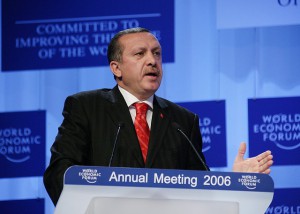 Turkey acknowledged that its lenghty fifty-year campaign to join the European Union is unlikely to be fruitful. The EU, led by France and Germany, seems apprehensive to accept this large country, with its lower level of economic development and its totally different culture.With accession an unrealistic prospect for the near future, Turkey felt justified in its non-compliance with the Copenhagen criteria. The West’s perceived inactivity in the Kurdish issue was another factor that incited Turkey’s gradual shift towards the East.
Turkey acknowledged that its lenghty fifty-year campaign to join the European Union is unlikely to be fruitful. The EU, led by France and Germany, seems apprehensive to accept this large country, with its lower level of economic development and its totally different culture.With accession an unrealistic prospect for the near future, Turkey felt justified in its non-compliance with the Copenhagen criteria. The West’s perceived inactivity in the Kurdish issue was another factor that incited Turkey’s gradual shift towards the East.
The party started to implement a new ideology called Neo-Ottomanism. Its main aim is to combine Islam and democracy, as well as to create a link between Ottoman legacy and the modernist Republican era. According to Duygu, AKP and Erdoğan brought about new laws such as the abolition of a ban on headscarves, attempting to outlaw abortion, and banning the sale of alcohol in shops after 10 pm.
Along with these domestic changes, Turkey started shifting its position on the geopolitical chessboard of the Middle East. It started “rediscovering” its old neighbors and started trying to have “zero problems” with them. This entailed the intensification of economic and cultural relations with the Turkic states of Caucasus, Central Asia and Balkans, along with other Middle East countries that were once part of its empire. The announcements about “discoveries” can hence be understood as an attempt to gain favor among other Muslim countries, however ridiculous they might sound to the rest of the world.
Erdoğan’s authoritarian style of governing, and the new limitations it has imposed on Turkish domestic life were questioned by what started as an environmental movement, but quickly turned into anti-government demonstrations in Gezi Park in 2013. It was the largest wave of protests in recent memory, as hundreds of thousands took to the streets in order to prevent the demolition of the park in service to the commercial needs of the government. Trying to contain international commentary highlighting elite corruption, as well as the mass demonstrations, Erdogan banned access to Twitter and YouTube, which only served to bring even more international attention on the domestic issues of Turkey.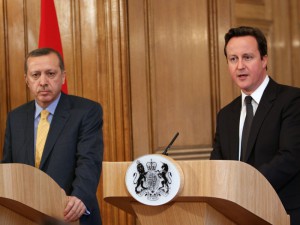
Despite this crackdown, his domestic popularity remains strong, as evidenced by his reelection to the Presidency this year. Moreover, in large part due to his pro-Islamic and pro-Arabic policies, Turkey is among the main powers competing for leadership in the Middle East, along with Iran and Saudi Arabia. Perhaps most telling, the Ak Saray, the “White Palace”, newly constructed presidential residence of Recep Tayyip Erdoğan, is the world’s biggest palace. The Turkish leader, who is preaching unity, solidarity and alliance in the Islamic world, seems to want to become its leader or, as it is often said in jest, its Sultan.
Nevertheless, Erdogan still faces a number of challenges ahead. His policy of gradual disengagement from the West has the potential to damage the Turkish economy, and therefore is met with resistance from the country’s economic sector. Additionally, Erdoğan’s rival Güllen, a US-based preacher of an Islamic community that has supporters even in the “inner circle” of Erdoğan, is actively undermining him and attempting to build a “parallel” state.
This anti-Western policy shift brings Turkey closer to Russia. Despite their different approaches to the Syrian and Crimean issues, Turkish refusal to comply with Western sanctions against Russia over Ukraine, was the first signal of a thaw in Russian-Turkish relations. The fact that, after the scrap of the South Stream gas pipeline, Russia announced plans to not only expand the Blue Stream pipeline for Turkey but also build another pipeline system, means that sooner or later Turkey will become a major gas hub for Europe.
On December 16, 2014 Erdoğan blamed the EU for keeping his country at the EU doorstep for fifty years, adding that he doesn’t care about their opinion about Turkish policies in Syria or domestic raids against opposition media anymore. His vision for Turkey seems very different from Ataturk’s. It is less secular, caring less about EU accession and more about its power and position in the Middle East. The loss of this secular buffer zone may have many unpredictable outcomes, both in the evolving crisis centering around the Islamic State of Iraq and Syria but also for the future of the Middle East as a whole.
By Ruzanna Baldryan
Image Credit:
Picture 1: World Economic Forum, licensed under CC BY-NC-SA 2.0
Picture 2: Number 10, licensed under CC BY-NC-ND 2.0
